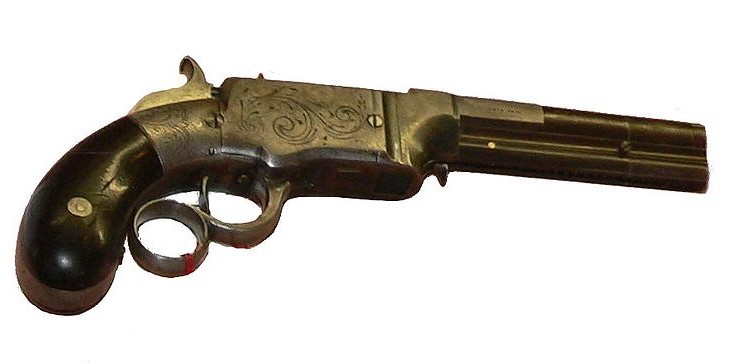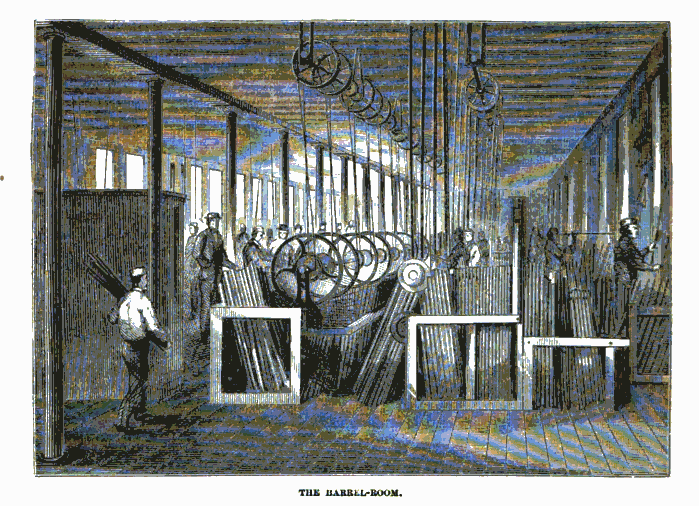With its year-round availability of water power, its location at the confluence of the Shetucket and Yantic Rivers, and proximity to major port cities like New York and Boston, Norwich has been attracting gun manufacturers since the American Revolution. The first recorded arms contract in Norwich was an order for 200 muskets placed with Nathan and Henry Cobb in 1798. While individual gunsmiths like the Cobbs prospered in early Norwich, large manufacturing firms controlled the local gun-making industry by the mid-19th century.
In 1842, Ethan Allen and his brother-in-law Charles Thurber moved their pistol-making operations from Grafton, Massachusetts, to Norwich. While the enterprise was only in Norwich for a few years, they left behind a local labor force trained in the finer aspects of gun making and numerous new firms soon took advantage of this valuable resource.

Smith & Wesson Volcanic, ca. 1854
In 1852, Norwich natives Horace Smith and Daniel Wesson founded the Smith & Wesson Company in their hometown. The two men manufactured rifles and pistols while developing their “Volcanic” rifle (one of the earliest repeating rifles). The two men changed the name of their company in 1855 to Volcanic Repeating Arms (an enterprise largely funded by Oliver Winchester). Smith and Wesson left Volcanic Repeating Arms the following year in order to manufacture a new revolver-and-cartridge combination design. Their old firm continued operations and eventually became the Winchester Repeating Arms Company.
While Allen, Thurber, Smith, Wesson, and Winchester all eventually left Norwich, the mid-19th century produced numerous arms companies in Norwich to take their place. Norwich companies, such as Bacon Arms, the Union Machine Company, the Eagle Arms Company, and the Norwich Arms Company, all provided armaments used during the Civil War. James Mowry, the founder of the Norwich Arms Company, won a contract in 1862 for 30,000 Springfield rifles. Mowry utilized a number of shops throughout the city to meet this demand and in successfully doing so secured a second contract that allowed him to build a factory complex capable of producing over 1,200 muskets and 3,000 bayonets per week.
While Norwich might not have been on the same level as larger cities like Hartford and Bridgeport when it came to gun manufacturing, its navigable waterways (and later rail lines), trained labor force, and access to major metropolitan areas made it a vital part of Connecticut’s firearms industry. During a 70-year span, Norwich was home to over 20 companies that helped make it a recognized name in armament manufacturing and innovation.









